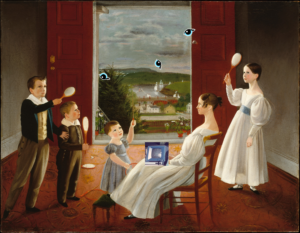Cosmetics company Rodan & Fields, LLC (R+F) launched in July 2020 a new product, its “Brow Defining Boost,” which did not fare well with Petunia Products, Inc. (Petunia), a competitor owning the federal trademark BROW BOOST, registered since June 2006.
R+F marketed its “Brow Defining Boost” product on social media and allegedly used the #BROWBOOST hashtag so prominently that it flooded Petunia’s marketing efforts to use this hashtag.
Former model Molly Sims now manages a beauty blog. Users may register for her newsletter, and follow her Instagram account, which is “shoppable.” Sims wrote a post on her blog promoting R+F “Brow Defining Boost” product, linking to R+F’s website. She wrote a second blog post, thanking R+F for sponsoring her post, reviewing favorably R+F’s product, including a link to R+F’s site as well as an image of the product and its price.
Last April, Petunia sued R+F and Sims for trademark infringement, contributory trademark infringement, false advertising under Cal. Bus. & Prof. Code § 17500, and unlawful and unfair business practices under Cal. Bus. & Prof. Code § 17200.
Sims moved to dismiss. On August 6, 2021, Judge Carney from the Central District of California granted the former model’s motion to dismiss Plaintiff’s contributory trademark infringement and Cal. Bus. & Prof. Code § 17500 claims but denied her motion to dismiss Plaintiff’s direct trademark infringement and Cal. Bus. & Prof. Code § 17200 claims.
The case is Petunia Products, Inc. v. Rodan & Fields, 8:21-cv-00630 (C.D. Cal.).

The blog post may be direct trademark infringement
Plaintiff alleged that R+F is a direct competitor, that its product serves a similar purpose than Plaintiff’s product, and further argued that it uses similar marketing channels as R+F, which may increase likelihood of confusion.
Judge Carney found that the Molly Sim’s post was a paid advertisement, and that she has “thus crossed from protected consumer commentary to commercial use.” As Molly Sims had used the term “Brow Defining Boost” several times in her post, which is similar to BROW BOOST, Judge Carney found that it was “plausible that readers of Sims’ Blog Post might believe that the Allegedly Infringing Product is affiliated with Plaintiff.”
Judge Carney found that “Plaintiff has sufficiently pled a likelihood of confusion under the Sleekcraft factors,” used in the Ninth Circuit to assess likelihood of confusion. The name of R+F’s “Brow Defining Boost” “is quite similar” to Plaintiff’s BROW BOOST trademark, as it “contains the terms “Brow” and “Boost”—the terms which comprise the Trademark—separated by the term “Defining.””
Judge Carney also noted that there is a risk of likelihood of reverse confusion, which “occurs when consumers dealing with the senior mark holder believe that they are doing business with the junior one.”
The blog post is not contributory trademark infringement
Contributory trademark infringement occurs when a defendant intentionally induced the primary infringer to infringe, or if a defendant has continued to supply an infringing product to an infringer knowing that the infringer is mislabeling the product supplied.
However, merely blogging about Defendant’s product as Sims did in the sponsored post is not contributory trademark infringement, and she was not aware of any infringement. Judge Carney granted her motion to dismiss the contributory infringement claim.
The blog post is not false advertising under California law
Using a mark likely to cause confusion can constitute false advertising under Section 17500. However, as Plaintiff “ha[d] not alleged actual or constructive knowledge as required under Section 17500,” Judge Carney granted Sims’ motion to dismiss the contributory infringement claim.
The blog post may be unlawful and unfair business practices under California law
As Judge Carney did not dismiss Plaintiff’s claim of direct trademark infringement, he did not dismiss Plaintiff’s “congruous” unlawful and unfair business practices claim under Cal. Bus. & Prof. Code § 17200.
Takeaway
The case will now move forward to a jury unless the parties settle.
Should Petunia prevail in a court of law, influencers would have to conduct due diligence before accepting to sponsor a product or services, including verifying that the name of the product or services is not infringing. This would be a heavy responsibility to bear.
Influencers would then be likely to negotiate in their contract a provision that the company “represents, warrants and covenants” that the product or service they are asked to promote or sponsor does not infringe third parties’ rights.
Image is courtesy of the Met Museum: Tabula (Square) with the Head of Spring, 5th–7th century






